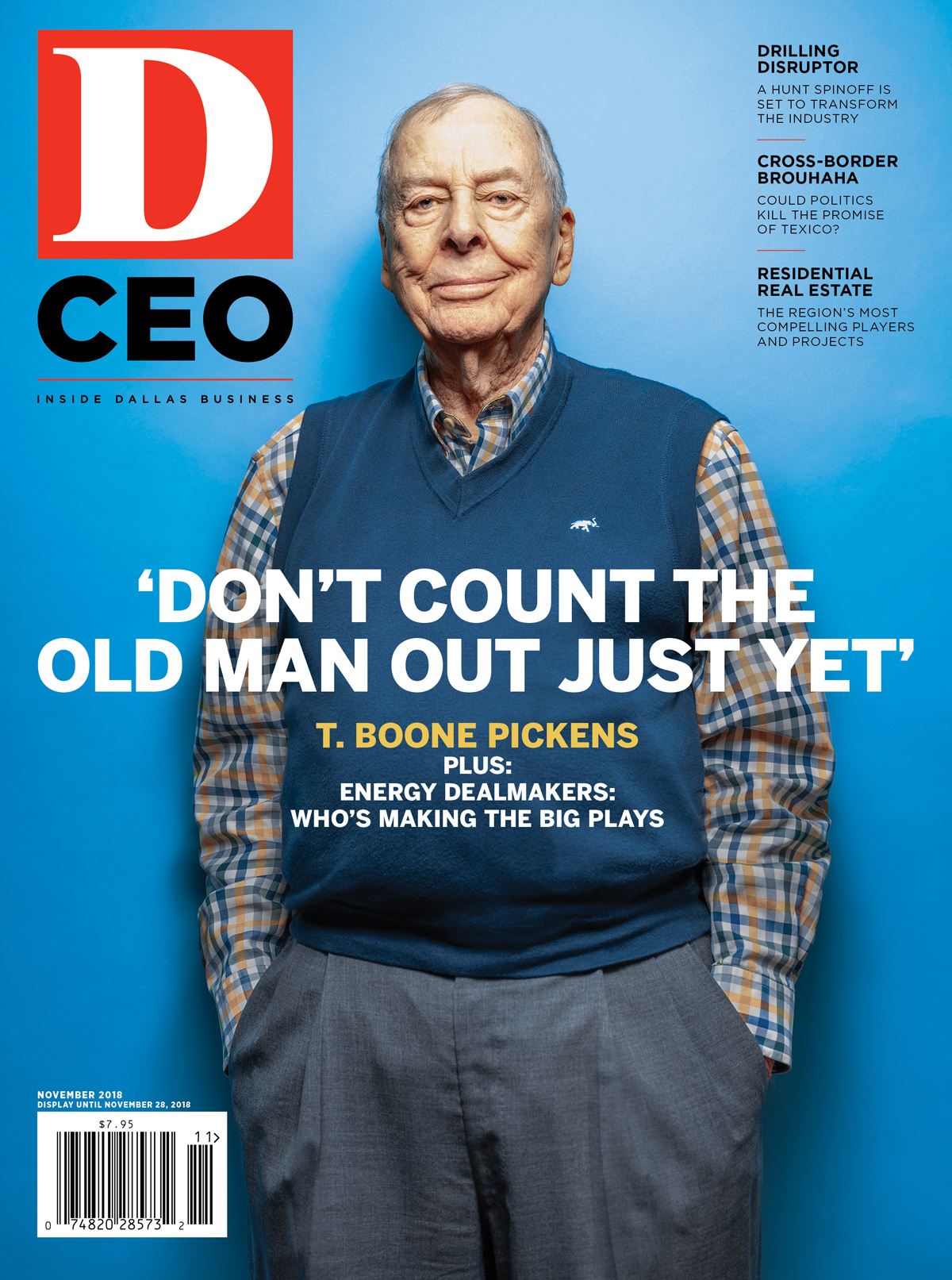Brian Crutcher spent 22 years working his way up through the ranks to become CEO of Texas Instruments, then held the job less than seven weeks before being ousted for “violations of the company’s code of conduct related to personal behavior that is not consistent with [TI’s] ethics and core values.” That action was based on a “credible claim of an ethical breach” presented to TI’s board, and corporate announcements said the violation was related to “personal behavior, not strategy, operations, or financial reporting.” Crutcher lost unvested stock options worth millions and received no severance.
Seven weeks. If the same claim had been pursued in court, it likely would have taken years to resolve, and even then could have resulted in a confidential settlement without any change to Crutcher’s standing.
It’s worth emphasizing that this was a preemptive action by TI’s board. There were no public accusations, no social media storm. As of this writing, TI has not disclosed what Crutcher was accused of doing.
Pundits were quick to point to social media, including the #MeToo movement, as the driving force. “The big difference may be since the #MeToo movement, more women are willing to come forward,” Kevin Krewell, principal analyst with Tirias Research, told MarketWatch after the news broke. “In the past, these issues were often swept under the rug, and women either paid off or intimidated.”
“Reputational risk has increasingly become a top-line preoccupation of boards,” Davia Temin, a NY consultant who coaches corporations in “reputation saving,” told The Dallas Morning News. She acknowledged that the change over the past few decades has resulted, at least in part because “the internet, fueled by social media, can turn an indiscretion into a viral bonfire in a heartbeat.” Temin added: “Share price seems to be whipsawed much more by reputational issues.”
For TI and other major players in the semiconductor industry, it appears to have become a powerful force indeed. In a period of less than 30 days, three CEOs of major semiconductor companies were ousted for violations of corporate codes of conduct. On June 21, Intel’s CEO Brian Krzanich was ousted following an investigation into a “consensual relationship with an Intel employee,” which Intel said was a violation of its non-fraternization policy. A week later, Rambus Inc. announced that CEO Ron Black had been fired in connection with “an incident unrelated to the company’s financial and business performance.” Crutcher was the third to lose his job this year, with TI’s announcement coming on July 17.
The phenomenon is by no means limited to the semiconductor industry. In May, Nike’s CEO Mark Parker apologized to company employees after a group of female employees circulated a covert internal survey that uncovered a pervasive “boys’ club culture” and failures by the human resources department to address complaints, resulting in the departures of several senior executives.
Despite a long-time legal ban on workplace discrimination (via Title VII of the Civil Rights Act of 1964) and thousands of sexual discrimination lawsuits, as much as 60 percent of working women say they continue to encounter hostile behaviors or comments based on their gender. Yet now, social media, illustrated by the #MeToo movement, appears to be accomplishing more—and far faster—than statutes and courts ever could. Public awareness and negative reaction are forcing CEOs to be accountable for far more than sexual harassment, and in extraordinarily short periods of time.
Just after Donald Trump was elected president, and while AT&T was pursuing a merger with Time Warner that required government sign-off, AT&T hired Michael Cohen, President Trump’s personal attorney, who’d said he was leaving the Trump Organization to consult for corporate clients on the new administration. AT&T’s connection to Cohen came out this past May, amid information released by pornographic film actress Stormy Daniels’ attorney, Michael Avenatti.
AT&T paid Cohen $600,000 in monthly $50,000 installments throughout 2017, with payment flowing into Essential Consultants LLC, the same company Cohen set up in 2016 to pay Daniels $130,000 as part of a confidentiality agreement regarding an alleged sexual encounter she’d had with Trump. On May 11, only a few days after his company was linked to Cohen, AT&T CEO Randall Stephenson sent an email to all employees calling the decision to hire him “a big mistake,” while asserting that AT&T had not broken the law.
Courts never could have forced that result, and certainly not in that short period of time.
Similarly, John Schnatter, founder of Papa John’s Pizza, stepped down as CEO in January 2018 after the company’s share price floundered in the wake of Schnatter’s public criticisms of NFL players’ protests over police brutality. He gave up his chairmanship in July after a recording surfaced of him using a racial slur.
Public Outcry
A study of 2,500 global companies by Strategy& consultants concluded that 5.3 percent of CEO exits stemmed from ethical lapses from 2012 to 2016, up from 3.9 percent in the preceding five-year period. Lapses included fraud, bribery, insider trading, inflated resumes, and sexual indiscretions. The researchers said it was not because CEOs are less ethical today, but rather because the public is more vocal, regulators are more proactive and punitive, and because digital communications and the 24/7 news cycle spread word of the misconduct.
These energies appear to be forcing action and change far more efficiently than any legislation or court ruling. TI’s Crutcher met his swift demise in 47 days. Consider by contrast the timeline for the 1986 United States Supreme Court decision involving Meritor Savings Bank, which opened the floodgates for sexual harassment claims. In that case, Mechelle Vinson alleged that during her four-year tenure with the bank, her direct supervisor, Sidney Taylor, demanded routine sex from her, caressed her on the job, followed her into the ladies’ room when she was there alone, and exposed himself to her, telling her that she “owed him” because he had obtained the job for her. And it wasn’t just her—she alleged that Taylor openly fondled other female employees.
Vinson stopped showing up for work on Sept. 1, 1978, and filed suit a week later. The district court conducted an 11-day bench trial—a trial before the judge, with no jury. Judges are notoriously impatient with evidentiary redundancy during non-jury trials, so a bench trial lasting more than two weeks involves a tremendous volume of documents and long days of testimony. In this case, that included testimony regarding the types of clothing Vinson wore to work and required her to testify about her sexual fantasies.
On Feb. 26, 1980, the judge ruled that Vinson was not the victim of sexual harassment or sexual discrimination because the sexual relations were “voluntary.” After a year-and-a-half of grueling litigation and a staggering defeat, Vinson appealed.
The glacial process of federal appellate procedure dragged out for another two years, with the matter coming before the District of Columbia Circuit Court of Appeals on Feb. 16, 1982. The DC Circuit held the matter for another three years before reversing the District Court’s ruling on Jan. 25, 1985. Taylor and the bank appealed to the U.S. Supreme Court, which was mercifully quick in affirming the DC Circuit with its opinion on June 19, 1986, a mere 18 months later.
All told, Vinson spent almost eight years in the judicial system. Taylor kept his job with Meritor the entire time—even after the Supreme Court handed down its decision. (He was later convicted of embezzlement.)
Vinson’s perseverance set a precedent that would have lasting effects. In the year before the Supreme Court’s decision in her case, the Equal Employment Opportunity Commission reported the filing of 10 sexual harassment cases. In the year after, that number shot up to 624, then 2,217 in 1990, and 4,626 by 1995.
Yet, even that remarkable swell in judicial action pales in comparison with the swift action taken by the boards of TI and other companies in modern times. The social media pen indeed can prove mightier than the judicial sword. The Internet’s pervasive immediacy has empowered social causes with a vast audience—more frightening to corporations than any black robe.
Steve Thomas is a business and technology litigator in Dallas.






